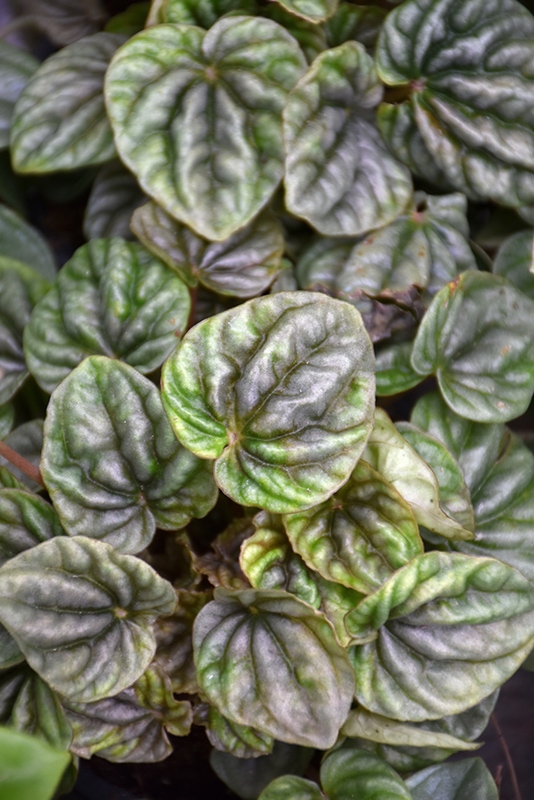Red Ripple Peperomia Peperomia caperata 'Red Ripple' Plant Height: 12 inches Flower Height: 18 inches Spread: 14 inches
Sunlight:
Other Names: Ripple Red Peperomia, Radiator Plant Description: This stunning plant produces intricate, rippled, heart shaped gray-green leaves black veins and red overtones; slender green flower stalks in summer are not showy; easy to grow in low to bright light, no direct sun Features & Attributes Red Ripple Peperomia's attractive crinkled heart-shaped leaves remain grayish green in color with distinctive black veins and tinges of red throughout the year on a plant with a mounded habit of growth. The brick red stems can be quite attractive and add to the plant's interest. This is an herbaceous evergreen houseplant with a mounded form. This plant may benefit from an occasional pruning to look its best. Planting & Growing When grown indoors, Red Ripple Peperomia can be expected to grow to be about 12 inches tall at maturity extending to 18 inches tall with the flowers, with a spread of 14 inches. It grows at a slow rate, and under ideal conditions can be expected to live for approximately 5 years. This houseplant should only be grown away from direct sunlight or in a room with strong artificial light. It does best in average to evenly moist soil, but will not tolerate standing water. The surface of the soil shouldn't be allowed to dry out completely, and so you should expect to water this plant once and possibly even twice each week. Be aware that your particular watering schedule may vary depending on its location in the room, the pot size, plant size and other conditions; if in doubt, ask one of our experts in the store for advice. It will benefit from a regular feeding with a general-purpose fertilizer with every second or third watering. It is not particular as to soil type or pH; an average potting soil should work just fine. There are many factors that will affect the ultimate height, spread and overall performance of a plant when grown indoors; among them, the size of the pot it's growing in, the amount of light it receives, watering frequency, the pruning regimen and repotting schedule. Use the information described here as a guideline only; individual performance can and will vary. Please contact the store to speak with one of our experts if you are interested in further details concerning recommendations on pot size, watering, pruning, repotting, etc. -- THIS IS A HOUSEPLANT AND IS NOT MEANT TO SURVIVE THE WINTER OUTDOORS IN OUR CLIMATE --![]()
![]()
![]()
![]()
![]()
![]()
![]()
![]()
Characteristics
Applications
Ornamental Features
This guide is an online resource representing many of the varieties that we carry over the course of the season, and is intended for informational purposes only. Inventory varies seasonally, so we cannot guarantee that every plant will be in stock at all times - please contact the store directly for current availability. It does not include our entire selection of plants, so be sure to visit our store to see varieties that may not be represented on this list.


